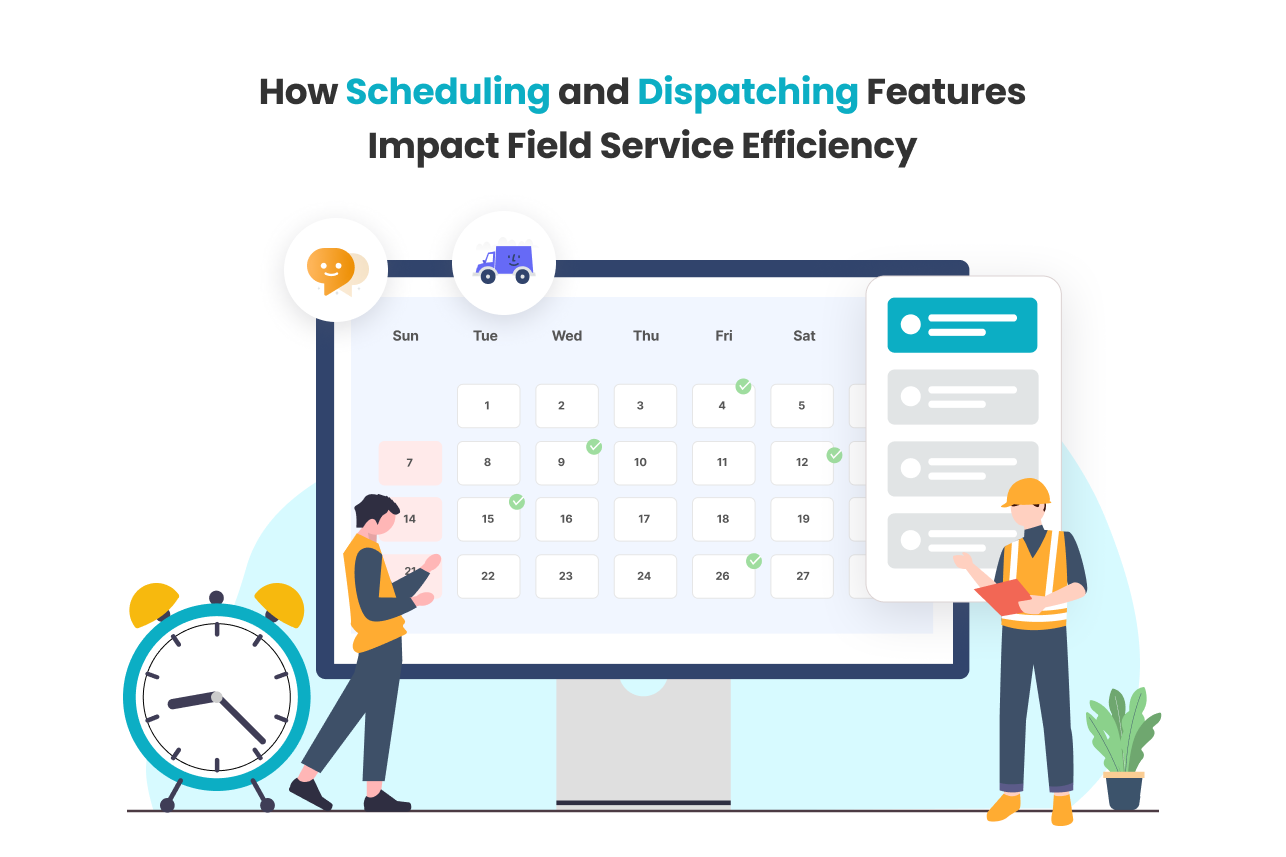Field service businesses, such as those involved in maintenance, repairs, and installations, rely heavily on their ability to manage resources effectively. Two critical features of field service software scheduling and dispatching play a vital role in optimizing operations, reducing downtime, and boosting overall efficiency. Let’s dive into how these features impact field service efficiency and why they are essential for any service-oriented business.
Optimized Resource Allocation
One of the most significant benefits of scheduling and dispatching features is the optimized allocation of resources. These tools allow businesses to assign the right technician to the right job based on various factors such as skill level, location, and availability. By automating this process, businesses can ensure that tasks are assigned efficiently, minimizing travel time and reducing idle time for technicians.
For example, a field service software solution can automatically suggest the closest available technician with the required skills for a particular job. This not only saves time but also ensures that customers receive timely service, leading to increased satisfaction.
Real-Time Updates and Communication
Scheduling and dispatching features provide real-time updates, allowing dispatchers and technicians to communicate instantly. This capability is crucial for managing last-minute changes, such as urgent jobs or customer cancellations. Real-time communication ensures that technicians receive up-to-date job details, route changes, and other critical information, enabling them to respond quickly and efficiently.
For instance, if a technician is running late or a job is taking longer than expected, the dispatch team can reassign tasks in real time to other available technicians, ensuring that the overall schedule remains on track. This dynamic adjustment helps prevent delays and keeps the workflow smooth.
Reduced Travel Time and Fuel Costs
Field service software with intelligent scheduling and dispatching can significantly reduce travel time between jobs. By optimizing routes and scheduling jobs in proximity to each other, businesses can cut down on unnecessary travel, leading to lower fuel costs and reduced wear and tear on vehicles.
Route optimization features analyze factors like traffic conditions, technician location, and job priority to determine the most efficient route. This not only saves time but also allows technicians to complete more jobs in a day, increasing overall productivity.
Improved Customer Experience
Efficient scheduling and dispatching directly impact customer experience. By ensuring that technicians arrive on time and are well-prepared for the job, businesses can meet or exceed customer expectations. Field service software can also provide customers with real-time updates, such as estimated arrival times and notifications when a technician is en route.
Furthermore, when a scheduling conflict or unexpected delay occurs, the dispatch team can quickly reschedule and communicate changes to the customer, maintaining transparency and trust. This level of service enhances customer satisfaction and builds long-term loyalty.
Enhanced Data Insights and Performance Tracking
Scheduling and dispatching features generate valuable data that can be used to track technician performance, job completion rates, and customer feedback. By analyzing this data, managers can identify areas for improvement, such as reducing the time between jobs or addressing frequent scheduling conflicts.
Data insights also help in making strategic decisions, such as determining whether additional staff or resources are needed during peak times. This data-driven approach leads to continuous improvement in field service operations.
Conclusion
Scheduling and dispatching are more than just logistical tasks; they are critical components of efficient field service management. By optimizing resource allocation, reducing travel time, enhancing communication, and improving customer experience, these features help businesses maximize their efficiency and productivity. For companies looking to stay competitive in today’s fast-paced service industry, investing in robust field service software with advanced scheduling and dispatching capabilities is a game-changer.
Efficient scheduling and dispatching not only streamline operations but also create a seamless experience for both technicians and customers, driving growth and success in the field service sector.
